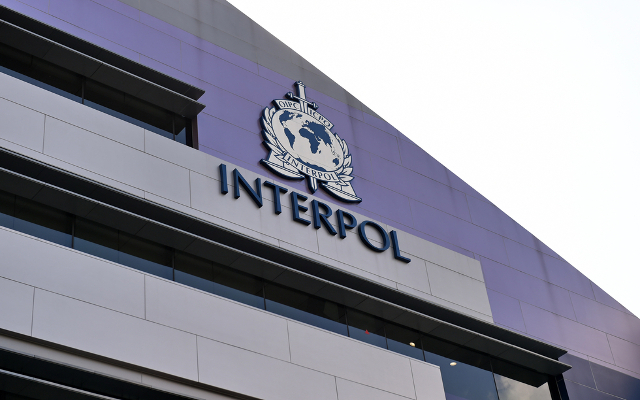INTERPOL’s Commission for the Control of Files (CCF) recently deleted a Red Notice issued against a Bahraini individual (who will remain nameless to preserve the confidentiality of the INTERPOL process and to protect identity), following a request submitted by Americans for Democracy & Human Rights in Bahrain (ADHRB). This is the second successful Red Notice deletion for a Bahraini individual following ADHRB requests for removal.
ADHRB first started its INTERPOL program in May 2016, and has worked on only a handful of cases, including one successful removal for an individual from Saudi Arabia and one from Bahrain, as well as certificates for multiple individuals who believed that they may have been subjected to a Red Notice, stating that they are not within INTERPOL’s data systems. ADHRB hopes that these cases will encourage other Bahrainis who believe that they may have Red Notices against them to seek assistance.
INTERPOL (the International Criminal Police Organization) is an independent international organization consisting of 192 member countries. While INTERPOL is a policing organization, INTERPOL has no powers of arrest or enforcement. Rather, it is up to each state’s law enforcement officers whether to arrest individuals in their territory. INTERPOL will however issue Red Notices and diffusions. A Red Notice is a request from INTERPOL to all member states to take the person identified into custody and, ultimately, deport them to the requesting country. A diffusion is a similar request prepared by an individual country that INTERPOL disseminates among its partners. As Bahrain does not publish this information on INTERPOL’s website, many individuals have only discovered the Red Notice or diffusion when they are detained attempting to travel.
INTERPOL has a process for removal for Red Notices and diffusions included in the CCF’s Statute. Article 3 of INTERPOL’s Constitution provides that the organization will not be involved in cases of a “political, military, religious or racial character.” INTERPOL will also consider the political nature on a case-by-case basis. Therefore, if an individual has been included in the INTERPOL database for his or her conviction of a crime that was based on the political beliefs or actions of the individual, their inclusion on the list can be challenged, even if the charges are not expressly political. Another consideration the Commission may make is whether an individual is recognized as a refugee by another country, or seeking asylum on political grounds or on the grounds of previous torture in Bahraini custody.
In this particular case, the individual was convicted and denaturalized in absentia in multiple trials that had been marred by fair trial rights violations, including allegations of torture to produce confessions, which were used in the trial against multiple defendants. This bears a striking resemblance to the case of Hakeem AlAraibi, a semi-professional footballer who played on Bahrain’s national team. Hakeem was tortured by Bahraini authorities in 2012 and convicted in absentia on the basis of coerced confessions in 2014, when he fled to Australia and sought asylum. He was granted refugee status there in November 2017 and resumed playing football for FC Pascoe Vale of Melbourne. As a refugee, Hakeem should not have been subjected to an INTERPOL Red Notice. However, he was arrested in Thailand in November 2018 on the basis of a Red Notice. When this was brought to the attention of INTERPOL, the Red Notice was promptly deleted. However, Bahrain sent a formal extradition request to Thailand’s Ministry of Foreign Affairs, and Hakeem currently remains in Bangkok Remand Prison, awaiting his next hearing on 22 April 2019, where he fears being extradited to Bahrain, despite calls from the international community for his safe return to Australia.
“Cases like Hakeem’s are precisely why ADHRB instituted this program,” says Husain Abdulla, Executive Director of ADHRB. “The Bahraini authorities are abusing systems that are meant to protect people and the rule of law for their own political gain, to silence activists and keep them in perpetual fear of arbitrary arrest. Decisions like deletions of Red Notices from INTERPOL allow these individuals to reclaim their right to travel, and hopefully ADHRB can help to prevent arrests and detentions like Hakeem’s through this program.”
Individuals who believe they may be the subject of a Red Notice or diffusion and are interested in this program are encouraged to fill out and send the following forms to INTERPOLComplaints@adhrb.org. Individuals can submit the forms and information in either English or Arabic.
Click here for a PDF of the victim letter; the power of attorney form; and ADHRB’s questionnaire in English or Arabic. Please fill out and submit all forms.





